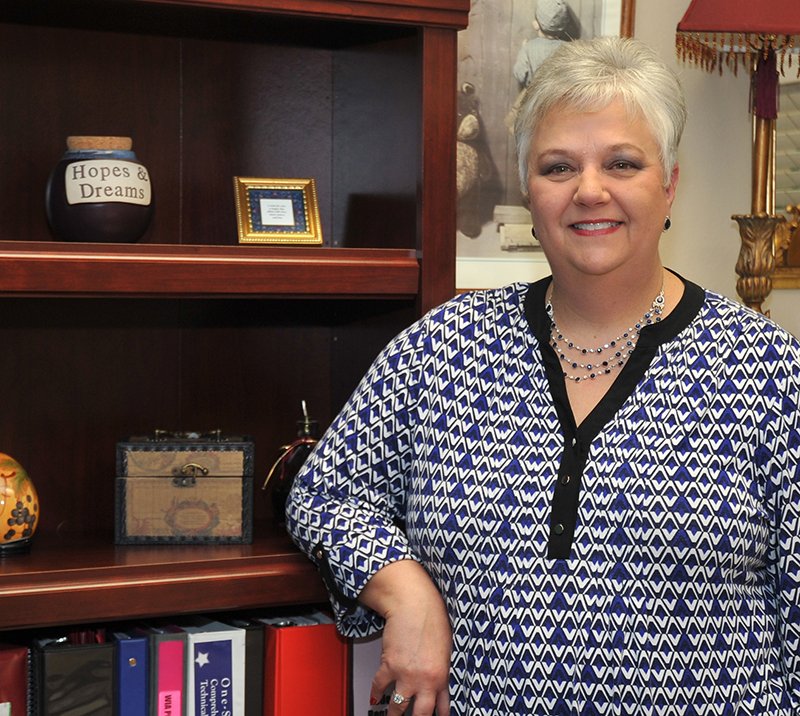EDITOR'S NOTE: This is the first in a series of interviews with cancer survivors, leading up to Relay for Life of Garland County on June 3 at Bank of the Ozarks Arena.
Several procedures and treatments later, Lauri Adams, 59, of Hot Springs, is a survivor of triple negative receptor breast cancer, which she was diagnosed with after a mammogram came back irregular in January 2013.
Adams went for a biopsy after doctors noticed a small speck in her mammogram on a Friday in January 2013 and, the following Monday, she was called with the results.
"When you hear someone say those three words, 'you have cancer,' it's something you hear people say to others, not you," Adams said. "I got the news over the phone while at work."
Trying to stay healthy and a nonsmoker, Adams noted she was the first person in her family to be diagnosed with cancer. In February 2013, she underwent a lumpectomy and partial axillary lymph node removal procedures. Complications from the lumpectomy surgery caused Adams's chemotherapy and radiation treatments to be pushed back until late fall.
"They thought I was having an allergic reaction to the latex drain tube, but it was improperly diagnosed," Adams said. "It was a staph infection. By the time it was properly diagnosed, they had to go under my arm and cut a softball-size abscess out."
With an open hole underneath her arm, she was unable to go to work for a month and had to receive assistance from home health care staff to keep it clean and packed with gauze. Friends would prepare her food, run errands and do various tasks that Adams stated were things "you take for granted."
"My son had recently completed Emergency Medical Technician treatment at National Park College and was really good at making sure that the open wound was clean and dressed. I think the timing of that was kind of unique," Adams said. "I think he had stayed the strongest for me."
The wound, that doctors did not stitch closed, remained open until October. Her wardrobe changed to sports bras and clothing that would not irritate the wound. Sleeping comfortably was a task.
She completed four rounds of chemotherapy and 25 rounds of radiation around Thanksgiving 2013. After her first round of Neupogen, a blood booster injection, Adams was not able to get out of bed due to pain. For her final three treatments of injections, doctors changed her to Neulasta.
"There are chemicals in the Neupogen that react with the muscle and bone and your body feels like it's in a vise," Adams said. "The Neulasta made the pain more manageable."
The injections improve the immune system to prevent cancer patients from getting sick. To fight nausea symptoms, she was given medication that instead gave her taste side effects.
"Everything tasted like pond scum. Even water had a bad taste," Adams said. "It was hard to find anything that tasted good."
Adams continues to get mammograms twice a year. For a five-year process, she will have blood drawn every 90 days to check her tumor marker to ensure the cancer does not reoccur.
Do not "shoulder it all yourself," Adams recommends. As an independent woman who is used to creating solutions and taking care of others, Adams had to learn to open up and let others help her.
"I've always been the person that took care of everything. I had to let go and let others help," Adams said. "If others offer to help, allow them to. They will step up in a big way. It is how you are able to cope because you realize you have a great support system."
Throughout her process of diagnosis, treatments and remission, Adams encourages regular screenings and credits listening to her doctor on when to come back for preventing her from having a very different outcome.
"Early detection is so critical. I encourage people to go for those screenings when the doctor is telling you to have a colonoscopy or yearly exams," Adams said. "The improvements in treatments have gotten so much better. Don't put it off, go get that screening."
Local on 05/01/2016